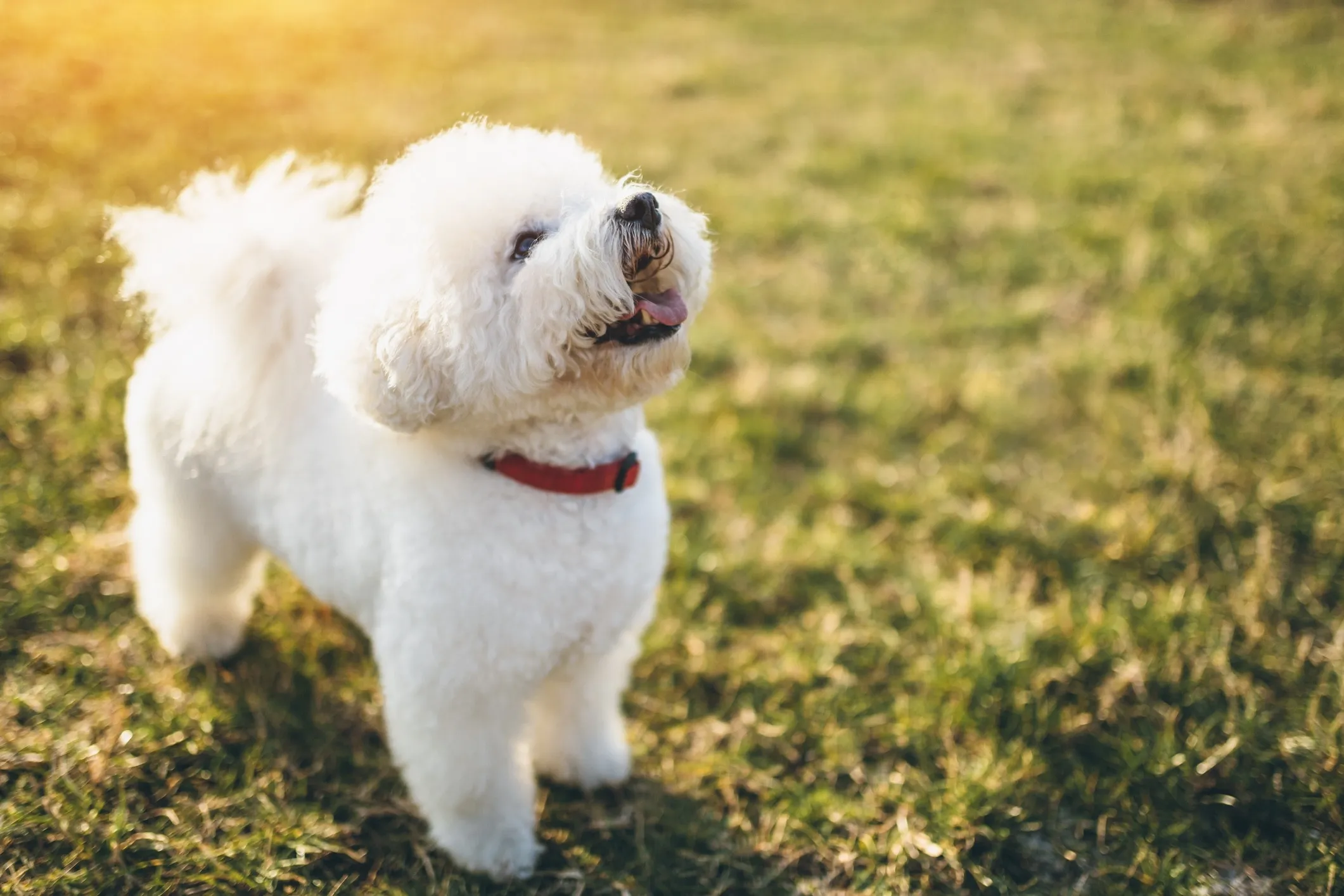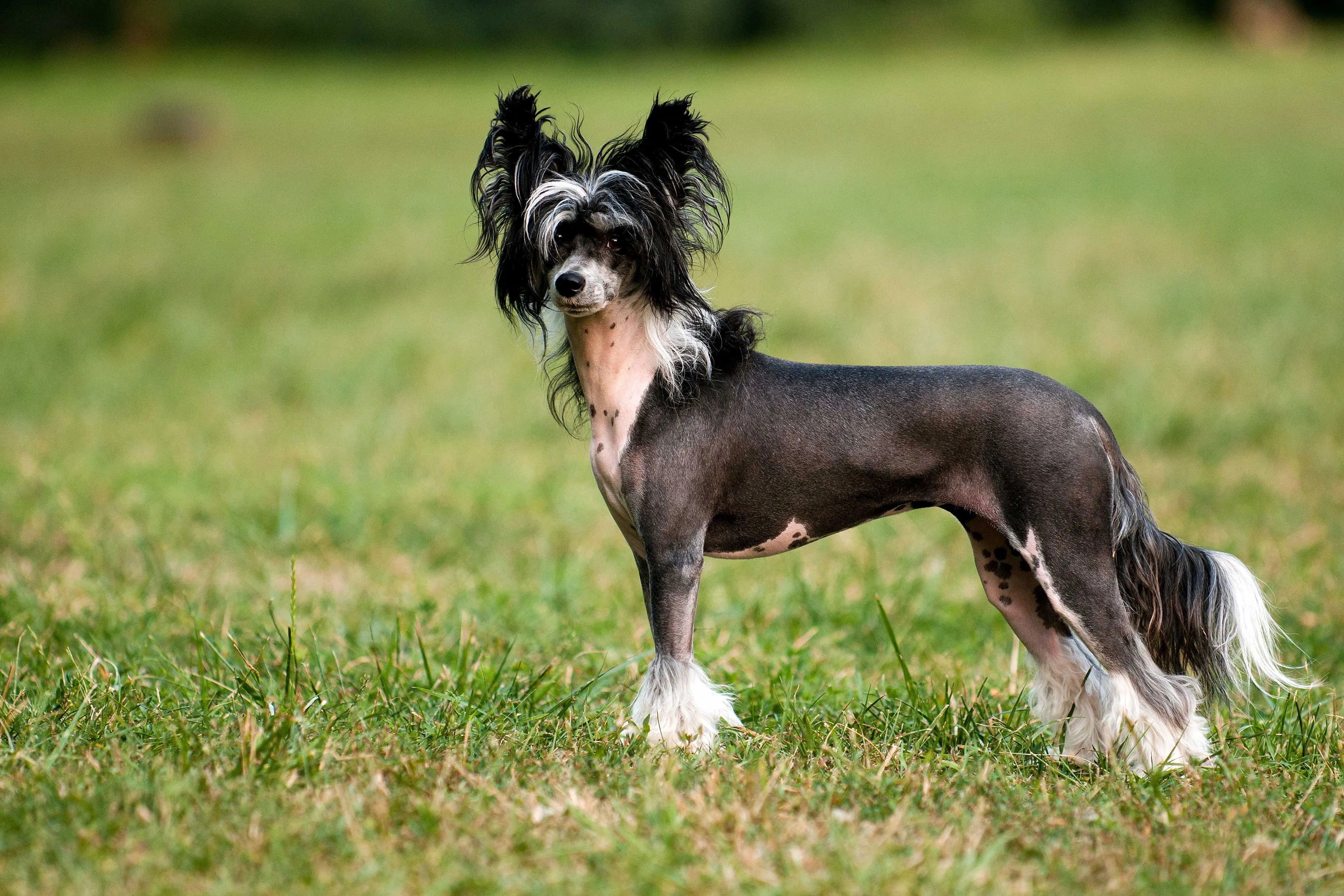Living with a dog is a dream for many, but for those with allergies, the reality can be a constant battle with sneezing, itching, and watery eyes. This is where the appeal of hypoallergenic dogs truly shines. If you’re looking for a furry companion that won’t trigger your allergies, focusing on small to medium sized dogs that don’t shed is a smart strategy. But what exactly makes a dog “hypoallergenic,” and which breeds fit the bill for smaller households or owners who prefer a more compact canine?
While no dog is completely allergen-free, certain breeds are known to produce fewer allergens and shed less hair, making them a more manageable choice for allergy sufferers. This guide will delve into the world of low-shedding breeds, specifically highlighting those that fall into the small to medium size category. These dogs offer the joy of canine companionship without the constant struggle of managing dander and fur.
Understanding Hypoallergenic Dog Breeds
The term “hypoallergenic” in dogs refers to breeds that are thought to cause fewer allergic reactions in humans. It’s important to understand that all dogs produce allergens. These allergens are primarily found in their dander (dead skin cells), saliva, and urine, not just their fur. Shedding dogs, however, tend to distribute these allergens more widely throughout a home as their hair falls out.
Breeds considered hypoallergenic often have coats that are less prone to shedding, or they may grow continuously, similar to human hair, requiring regular grooming. This means allergens are shed less frequently and in smaller quantities, which can significantly benefit individuals with dog allergies. However, it’s crucial to remember that even the lowest-shedding breeds can still pose a risk to highly sensitive individuals. Spending time with the specific breed you’re considering is always recommended before bringing them home.
 A fluffy white Bichon Frise dog looking up in the grass.
A fluffy white Bichon Frise dog looking up in the grass.
Popular Small to Medium Sized Low-Shedding Dog Breeds
When seeking a smaller companion that won’t leave a trail of fur, several breeds consistently rank high. These dogs are not only easier on the sinuses but also generally adapt well to various living environments, including apartments and smaller homes.
1. Poodles (Miniature and Toy)
Poodles are renowned for their intelligence and their virtually non-shedding coats. While the Standard Poodle is a larger breed, the Miniature and Toy Poodle varieties are excellent choices for those seeking small dog breeds that don’t shed and stay small. Their curly coats require consistent grooming to prevent matting, but this same coat type is what makes them a top pick for allergy sufferers.
2. Yorkshire Terrier
Yorkies are small, spirited dogs with a silky, low-shedding coat. These feisty companions are surprisingly adaptable to different living situations, from spacious houses to cozy apartments, provided they receive ample attention and affection. Their compact size and minimal shedding make them ideal small to medium sized dogs that don’t shed.
 A blue and tan Yorkshire Terrier lounging on an armchair.
A blue and tan Yorkshire Terrier lounging on an armchair.
3. Shih Tzu
An ancient companion breed, the Shih Tzu possesses a luxurious coat that sheds very little. While their thick hair requires regular brushing and grooming to prevent tangles, their friendly demeanor and compact size make them beloved pets. Be mindful of their brachycephalic (flat) face, which can predispose them to certain health issues like overheating and breathing difficulties.
4. Miniature Schnauzer
The smallest of the Schnauzer breeds, the Miniature Schnauzer is a smart and active dog with a distinctive wiry coat that sheds minimally. They are well-suited for various living environments and typically require about an hour of exercise daily. Their minimal shedding aligns perfectly with the search for quiet small dog breeds that don’t shed.
5. Bichon Frise
These small, playful, and affectionate dogs are characterized by their curly, white, hypoallergenic coat. Bichons are highly intelligent and trainable, making them quick learners. Their non-shedding nature, combined with their cheerful disposition, makes them a delightful addition to many families looking for cute small dog breeds that don’t shed.
6. Chinese Crested
The Chinese Crested offers a unique appearance with two main varieties: hairless and powderpuff. Both are considered hypoallergenic due to minimal shedding. The hairless variety has smooth skin with tufts of hair on the head, tail, and paws, while the powderpuff is covered in long, soft hair. They are known for being playful and affectionate.
 A black Chinese Crested dog looking at the camera.
A black Chinese Crested dog looking at the camera.
7. Bolognese
Originating from Italy, Bolognese dogs are small, fluffy, and hypoallergenic companions. Their long, white coat requires considerable grooming but sheds very little. These playful and easygoing dogs are known for getting along well with children and other pets, fitting into various living situations.
8. Maltese
The Maltese is a quintessential small hypoallergenic dog, celebrated for its long, luxurious white coat. These affectionate and playful dogs require dedicated grooming to maintain their beautiful appearance. For owners who prefer a more manageable length, a short “puppy” cut can simplify grooming routines.
9. Coton de Tulear
Hailing from Madagascar, the Coton de Tulear is a small, easygoing breed with a distinctive cotton-like coat that sheds minimally. Their good nature makes them excellent companions for children and other pets, especially when introduced properly. They thrive on close companionship.
10. Schnoodle
A delightful crossbreed between a Schnauzer and a Poodle, the Schnoodle combines the hypoallergenic qualities of both parent breeds. Their coat can be curly or wavy and is consistently low-shedding. This mix results in intelligent, friendly dogs that are well-suited for families.
11. Shih-Poo
This charming mixed breed is a cross between a Shih Tzu and a Poodle, typically a Toy Poodle. Shih-Poos are small and can adapt well to various living environments. They require about 30 minutes of daily exercise and regular brushing to maintain their low-shedding coat.
12. Malshi
As a cross between a Maltese and a Shih Tzu, the Malshi is a happy, small hypoallergenic dog that thrives on close companionship. Their need for human interaction makes them devoted pets who love to be near their owners.
13. Whoodle
A cross between a Soft-Coated Wheaten Terrier and a Poodle, the Whoodle is a friendly and intelligent dog with a remarkably low-shedding coat. They inherit their affectionate nature from both parent breeds, making them wonderful family pets.
Key Considerations for Living with Low-Shedding Dogs
While choosing a breed that sheds minimally is a significant step, remember that these dogs still require dedicated care to manage allergens and maintain their health and well-being.
Consistent Grooming is Crucial
Even low-shedding breeds need regular grooming. Their coats, often curly or continuous-growing, require frequent brushing to prevent matting and tangles. Depending on the breed, this might involve daily brushing, professional grooming appointments every few weeks, or even specific techniques like hand-stripping. Regular bathing, typically every four to six weeks, can also help wash away any allergens clinging to the coat. Using specialized shampoos designed to reduce dander can further assist allergy sufferers.
Maintaining a Clean Home Environment
Beyond grooming your dog, keeping your home clean is paramount. Regular vacuuming, dusting, and washing of bedding will help minimize any stray dander that might accumulate. Using air purifiers can also significantly improve air quality by capturing airborne allergens. Ensuring good ventilation within your home is another effective strategy.
Understanding Allergen Sources
It’s vital to remember that allergens are present not only in a dog’s fur but also in their saliva, urine, and dander. While low-shedding breeds reduce the amount of fur carrying these allergens, direct contact with your dog’s saliva or urine can still trigger reactions. Understanding this can help you manage your environment and interactions accordingly.
Consult with Healthcare Professionals
If you have significant allergies, consulting with your doctor or an allergist is essential. They can provide tailored advice on managing your symptoms, which may include medication, nasal sprays, or immunotherapy. They can also help you assess your suitability for living with a particular dog breed.
By understanding the unique needs of these small to medium sized dogs that don’t shed and committing to a consistent care routine, you can significantly improve your chances of enjoying the wonderful companionship of a canine friend without the constant worry of allergic reactions. These breeds offer a fantastic solution for those seeking the joy of dog ownership while managing allergy sensitivities.
